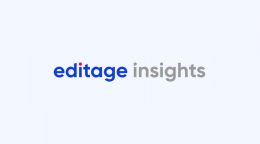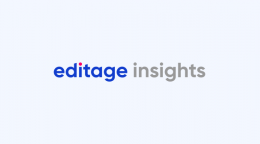A look at Sci-Hub’s current state and its impact on scholarly communication

In 1991, the Internet opened to the public, bringing the great promise of allowing everyone to access data that had historically been cloistered in universities and research institutions, and further democratizing research publication. Digital academic publishing has successfully allowed everyone to access an unprecedented range of research information, particularly in the Global South.
However, the dream of complete access to all published research data is unrealized for all but a privileged few. Most established journals are fully or partially paywalled, shutting out billions of people who don’t have deep pockets or institutional subscriptions. Here, I look at Sci-Hub’s controversial measures to overcome this issue.
The history of Sci-Hub
The open access (OA) movement shares a great deal with the free software movement, which began in the 1980s with Richard Stallman’s vision of creating a free and open-source operating system: the GNU project. Until then, most software had been closed-source and expensive, meaning that only large and well-funded institutions had access to advanced UNIX-based computing systems. Linus Torvalds’ open-source Linux kernel and GNU realized free and capable operating systems. Today, free software is ubiquitous in our lives, powering everything from servers to smartphones, enabling billions of dollars in commercial activity daily.
Academic research has experienced a similar reckoning. The OA movement started as grassroots effort of researchers making their papers available online and founding new OA journals. The results speak for themselves—OA has enjoyed a meteoric rise. However, unlike the free software movement, which can meet its goals by creating free software, OA movement still struggles due to the vast number of papers that remain behind paywalls. OA publishing cannot liberate the information that is already paywalled.
In 2011, Alexandra Elbakyan, a computer researcher from Kazakhstan, had a simple solution to paywalls—piracy. She created Sci-Hub, which enabled researchers to easily access nearly any published paper with a DOI. Using several methods, including hosting donated PDFs, downloading via institutional proxies, and webscraping with shared access credentials, she has founded a repository that holds over 88 million papers for free perusal. In 2017, one analysis found that 85.1% of articles published in toll access journals could be found on Sci-Hub, and this figure has no doubt increased since then. Elbakyan’s crusade to breach paywalls and enable full OA have led to her being dubbed “the Pirate Queen of Scientific Publishing1.”
What researchers think of Sci-Hub versus publishers’ opinions
Despite being illegal, researchers have actively embraced Sci-Hub. More than 50% surveyed in 2022 admitted to using Sci-Hub2, and the true figure is quite possibly higher. Researchers have often appraised Sci-Hub as being a net positive to research.
Sci-Hub has been heavily used in the Global South, particularly in China3. It is worth noting that China is also both becoming recognized as the world’s top contributor to scientific research and has enthusiastically embraced OA models4.
Meanwhile, traditional publishers are understandably incensed at Sci-Hub’s flagrant violations of copyright law and the effects on their bottom line. Elbakyan has justified her actions by referencing Article 27 of the Universal Declaration of Human Rights, which affirms “Everyone has the right […] to share in scientific advancement and its benefits5,” but this justification is unlikely to persuade any courts of law.
The divide in attitudes between researchers and the publishing industry can be succinctly understood in a 2019 debate session held at the Researcher to Reader Conference6, in which a researcher and scientific publishing consultant argued for and against Sci-Hub, respectively, with an almost even divide of opinions between those attending. Both parties make salient observations and persuasive arguments, so I recommend watching their debate7 if you have some time.
The significance of Sci-Hub has also been highlighted by those outside the “core” audience of academics in universities, such as physicians, teachers, and students. One successful YouTuber and consultant cardiologist from the UK, MedLife Crisis, has praised Sci-Hub and conducted an interview with Alexandra Elbakyan8, which has been viewed almost one million times at the time of writing.
Headaches for Sci-Hub
In 2015, Sci-Hub faced its first hurdles in the United States, with publishing giant Elsevier bringing a copyright infringement lawsuit in New York against both Sci-Hub and Library Genesis (LibGen), a book piracy website. Sci-Hub lost this trial through a default judgment, with the court awarding $15 million in damages and issuing an injunction that led to Sci-Hub losing its original domain9.
Since then, Elsevier has spearheaded efforts by publishers to ban Sci-Hub, winning cases by default in countries including the UK, Sweden, Russia, and more.
In 2020, Elsevier and other publishers brought a copyright infringement lawsuit to the Delhi High Court10, while also seeking an injunction that will protect against any future attempts to rehost or rebrand their service. This time, Sci-Hub is seeking to defend against the suit, which has brought considerable disruption to Sci-Hub’s normal service; in accordance with an order by the Delhi High Court11, Sci-Hub has suspended the addition of new papers since January 2021. As of May 2023, the case remains ongoing, with many academics in India offering Sci-Hub support in their defense10. Sci-Hub is attempting to defend themselves on the grounds of the fair dealing exception in Indian copyright law12.
Sci-Hub’s tenuous future
Sci-Hub remains online, often needing to change domain and hosting to stay accessible. Despite major pauses in uploads, it remains commonly accessed, attracting tens of millions of monthly downloads13.
However, it remains unseen if Sci-Hub has a future in its present form. As it becomes blocked in more countries and faces more legal challenges, there may come a time when a lack of will or insurmountable technical issues render its continued operation untenable. For every enduring piracy site like The Pirate Bay, many more are successfully taken down by lawsuits. Indeed, many researchers have tirelessly worked to mirror the Sci-Hub repositories to ensure continued access even if the website is brought offline by legal issues14.
The continued demand for free access to scientific literature, coupled with the limitations of traditional academic publishing models, may lead to increased support for Sci-Hub and similar initiatives in the future. Many researchers have grown fond of the access offered by Sci-Hub, so other models to address these needs are likely to appear, such as India’s plan to directly negotiate a deal with publishers15. In the meantime, it appears that neither Sci-Hub nor Elsevier et al. are willing to give up on their respective goals. The eventual Delhi High Court ruling will almost certainly not be the end to this conflict.
References
1. https://www.chronicle.com/author/tom-bartlett. Is the Pirate Queen of Scientific Publishing in Real Trouble This Time? The Chronicle of Higher Education https://www.chronicle.com/article/is-the-pirate-queen-of-scientific-publishing-in-real-trouble-this-time (2021).
2. Segado-Boj, F., Martin-Quevedo, J. & Prieto-Gutierrez, J.-J. Jumping over the paywall: Strategies and motivations for scholarly piracy and other alternatives. Preprint at https://doi.org/10.48550/arXiv.2212.05965 (2022).
3. Owens, B. Sci-Hub downloads show countries where pirate paper site is most used. Nature (2022) doi:10.1038/d41586-022-00556-y.
4. Open access publishing in China: Lessons from the CAST–STM report. Editage Insights https://www.editage.com/insights/open-access-publishing-in-china-lessons-from-the-cast-stm-report (2023).
5. Nations, U. Universal Declaration of Human Rights. United Nations https://www.un.org/en/about-us/universal-declaration-of-human-rights.
6. Anderson, R. Researcher to Reader (R2R) Debate: Is Sci-Hub Good or Bad for Scholarly Communication? The Scholarly Kitchen https://scholarlykitchen.sspnet.org/2019/04/16/researcher-to-reader-r2r-debate-is-sci-hub-good-or-bad-for-scholarly-communication/ (2019).
7. R2R 2019 - 07 - Sci-Hub Debate. (2019).
8. Should Knowledge Be Free? (2020).
9. US court grants Elsevier millions in damages from Sci-Hub | Nature. https://www.nature.com/articles/nature.2017.22196.
10. What Sci-Hub’s latest court battle means for research. https://www.nature.com/articles/d41586-021-03659-0.
11. Delhi HC asks 2 Libgen, Sci-Hub to stop uploading articles. Hindustan Times https://www.hindustantimes.com/india-news/delhi-hc-asks-libgen-sci-hub-to-stop-uploading-articles-as-they-face-copyright-infringement-charges/story-cRWCB1sGs1yMqR3TCpuvmL.html (2020).
12. DOCTRINE OF FAIR DEALING IN THE INDIAN COPYRIGHT LAW. Indian Review of Adv https://www.iralr.in/post/doctrine-of-fair-dealing-in-the-indian-copyright-law (2021).
13. Sci-Hub: statistics. https://www.sci-hub.st/stats.
14. Archivists Want to Make Sci-Hub ‘Un-Censorable’. Gizmodo https://gizmodo.com/archivists-want-to-make-sci-hub-un-censorable-1846898276 (2021).
15. India ‘in strong position’ heading into talks with publishers. Times Higher Education (THE) https://www.timeshighereducation.com/news/india-strong-position-heading-talks-publishers (2022).
Comments
You're looking to give wings to your academic career and publication journey. We like that!
Why don't we give you complete access! Create a free account and get unlimited access to all resources & a vibrant researcher community.

Subscribe to Journal Selection
After writing a research paper, the next step is to find the right journal to publish it. Subscribe and get curated content to find the perfect journal that will give impetus to your research paper and your career.













